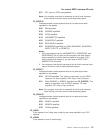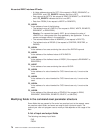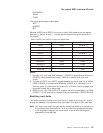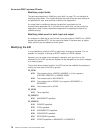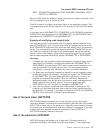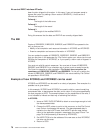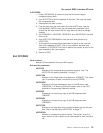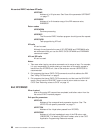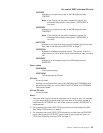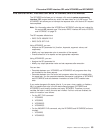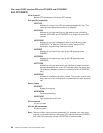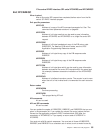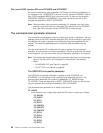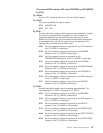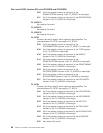UEPRESP
Address of a 4-byte binary copy of the EIB response code
‘EIBRESP’.
Note: If the file that has just been accessed is remote, the
addressed field contains zeros (even if UEPRCODE is
non-zero).
UEPRESP2
Address of a 4-byte binary copy of the EIB response code
‘EIBRESP2’.
Note: If the file that has just been accessed is remote, the
addressed field contains zeros (even if UEPRCODE is
non-zero).
UEPTSTOK
Address of a 4-byte token that is valid throughout the life of a task.
See “Use of the task token UEPTSTOK” on page 77.
UEPRECUR
Address of a halfword recursion counter. The counter is set to 0
when the exit is first invoked, and is incremented for each recursive
call.
UEPRSRCE
Address of an 8-character copy of the EIB resource value,
EIBRSRCE.
Return codes
UERCNORM
Continue processing.
UERCPURG
Task purged during XPI call.
XPI calls
All can be used.
Although the exit permits the use of XPI GETMAIN and FREEMAIN calls,
we recommend that you use the EXEC CICS GETMAIN and FREEMAIN
commands instead.
API and SPI calls
All can be used.
Notes:
1. Take care when issuing recursive commands not to cause a loop. For example,
it is your responsibility to avoid entering a loop when a file control request is
issued from the XFCREQC exit. Use of the recursion counter UEPRECUR is
recommended.
2. Exit programs that issue EXEC CICS commands must first address the EIB.
See “Using CICS services” on page 5.
3. Exit programs that issue EXEC CICS commands, and that use the DFHEIENT
macro, should use the DFHEIRET macro to set a return code and return to
CICS. See “Returning values to CICS” on page 10.
file control EXEC interface API exits
Chapter 1. Global user exit programs 81



